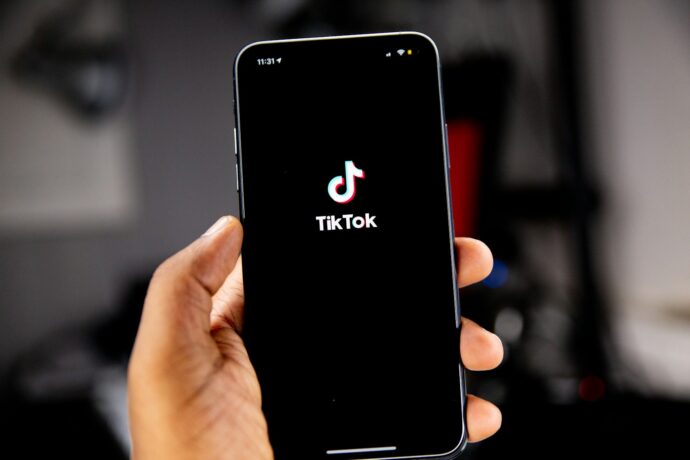
Image from Unsplash
In today’s fast-moving world, competition is no longer limited to stadiums, arenas, or training facilities. People encounter competitive moments in all kinds of places. It could be playing a quick mobile game, hitting a personal best during a workout, outperforming colleagues on a leaderboard, or even navigating fast-paced digital platforms such as crypto casinos where quick decisions add an extra layer of excitement. These small interactions reveal something important: the competitive mindset isn’t just for athletes, it’s a natural human drive that shows up in everyday life.
And when you look closely, the qualities that help someone succeed in sports often translate into gaming, personal challenges, and real-world achievements. Competition fuels motivation, sharpens focus, builds resilience, and encourages people to push past their limits. That’s why the competitive mindset keeps thriving no matter the environment.
Competition Is Wired Into Human Behavior
You don’t have to be an athlete to feel competitive. From childhood games to school tests and workplace performance, nearly everyone encounters situations where they want to do well, stand out, or simply get better. Competition is a natural psychological driver. It activates the mind in ways that spark energy, concentration, and emotion.
Modern life has amplified this tendency. Fitness apps track streaks, video games measure rankings, social media shows engagement metrics, and even professional settings include KPIs and performance goals. Everywhere you look, there are systems that reward progress, improvement, or winning. So people instinctively tap into their competitive side, not necessarily to beat others, but to push themselves forward.
Sports have always embraced this drive, but daily life is full of small competitions that mirror the same emotional patterns. Whether someone finishes a level in a game or sets a new personal record during a run, that small victory can offer the same sense of satisfaction as winning a point in a match.
Micro-Challenges Keep Us Engaged
One of the biggest reasons competition feels so natural today is the rise of micro-challenges, quick, achievable tasks that give instant feedback. They show up in many forms: short workouts, fast-paced games, skill-tracking apps, reaction challenges, and simple decision-making moments that test how quickly someone can think.
These micro-challenges are motivating because they deliver immediate outcomes. You know right away whether you succeeded, improved, or need another try. The quick feedback keeps people engaged and encourages them to try again, which is the same cycle athletes experience during training sessions or drills.
This pattern of repeated effort followed by quick results builds a stronger competitive mindset over time. People learn to enjoy the process, not just the result. They get used to pushing through small difficulties, celebrating progress, and staying mentally involved.
Data and Feedback Release Competitive Energy
Every competitive mindset needs one thing above all: measurable feedback. Modern technology provides that constantly. Fitness apps count steps, track time, and measure heart rate zones. Gaming platforms break down accuracy, reaction time, or strategy choices. Even productivity tools show streaks, scores, and weekly performance summaries.
This constant flow of feedback gives people something to chase. When you can see your numbers improve, even slightly, it creates momentum. Athletes know this feeling well. They measure progress in reps, times, distances, or tactical improvements. But now, people outside of sports experience that same satisfaction through everyday digital tools.
According to research published in the Journal of Personality and Social Psychology, immediate performance feedback significantly enhances motivation and engagement because it strengthens the link between effort and reward.
This means competition thrives not only because people love winning, but because they love seeing how each action leads to improvement. The more feedback they get, the more driven they become.
Gaming and Sports Share the Same Competitive DNA
Image from Unsplash
At first glance, athletes and gamers seem worlds apart. One group trains on fields or courts, while the other competes through screens and controllers. But psychological studies show that the underlying competitive motivations are incredibly similar.
Both environments demand:
- quick decision-making
- sharpened focus
- emotional regulation
- pattern recognition
- risk evaluation
- resilience after loss
- confidence under pressure
These similarities explain why so many athletes enjoy gaming and why gamers relate to sports-style competition. Whether it’s calling the next play on a field or reacting to an unexpected turn in a game, the mental processes are nearly identical. Both rely on the thrill of uncertainty and the satisfaction of mastering a challenge.
This overlap also makes it easier to connect the competitive mindset developed in sports to other competitive spaces. Skills such as reading situations quickly, staying calm during pressure moments, or learning from mistakes transfer easily from one arena to another.
Competition Builds Resilience in All Areas of Life
One of the most valuable benefits of a competitive mindset is resilience, the ability to bounce back after setbacks. In sports, resilience is essential. Losses, injuries, mistakes, and tough moments happen constantly. Athletes learn to reset mentally, adjust their approach, and keep pushing.
This mental toughness is just as important outside of sports. Setbacks happen in work, personal goals, and everyday challenges. A competitive mindset teaches people to stay focused, try again, and not lose confidence after one difficult moment.
Competition encourages growth because it shifts the focus from “being perfect” to “getting better.” That mindset is powerful whether someone is training on a field, navigating a career, or facing everyday responsibilities.
Healthy Competition Improves Personal Growth
Competition often gets misunderstood as being about beating other people. In reality, the strongest competitive mindset is internal, aimed at self-improvement rather than outshining others.
Healthy competition leads to:
- stronger discipline
- higher motivation
- better planning skills
- increased confidence
- long-term consistency
This type of competition doesn’t rely on comparing yourself to others. Instead, it focuses on who you were yesterday and who you want to be tomorrow. Sports reinforce this idea, but so do small daily challenges, personal goals, and even the quick-thinking environments people encounter online.
When viewed this way, competition becomes a tool for growth rather than pressure. It encourages patience, persistence, and goal-setting, all qualities that extend well beyond sports.
The competitive mindset thrives in sports, gaming, and everyday life because it’s rooted in human nature. Whether someone is training for better performance, pushing to improve a skill, enjoying a fast-paced game, or navigating small digital challenges, the drive to compete makes experiences more engaging and rewarding.
Competition isn’t just about winning. It’s about growth, learning, and discovering how far you can push yourself. And that’s why it remains one of the most powerful forces shaping performance, on the field, on the screen, and everywhere in between.



